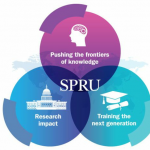Sustainable Development | University of Sussex
On our MSc Sustainable Development, you’ll learn how to translate socio-ecological theories and technological innovation into effective policies and practices for sustainable development.
How does the programme provide content to ensure students achieve an understanding of a reasonably diverse set of perspectives on understanding economies?
The course provides a systematic understanding of measurement issues and indicators of growth, development, income inequality and poverty that will be linked to relevant macro-transformation of economies. Traditional concepts of industrial policy are revisited and connected to a science, technology and innovation (STI) framework. The concept of capabilities is introduced and examined in the context of various sectoral components of economies: agriculture, industry, services, public services. The concept of Innovation Systems is also examined from a development angle, and the different sectoral, regional and national dimensions of it are introduced. Historical national cases of catching-up and falling behind are illustrated in depth and revisited within an industrial and STI policy perspective, including Latin American and Asian countries.
How does the programme ensure students understand the interaction between economic and ecological systems?
Issues of sustainable development politics and policies are central to the course. The course provides an understanding of different social scientific perspectives on sustainable development (SD), including those forwarded by orthodox economists and large development agencies following the publication of 'Limits to Growth' and the Brundtland Report. Competing conceptualizations of SD proposed by non-economists, grassroots organizations and environmental movements are also introduced. And the extent to which these different conceptualizations encompass environmental and socio-economic dimensions of SD will be discussed.
How does the programme ensure students understand how to critically explore real-world evidence, both qualitative and quantitative?
The course introduces students to policies and strategies of sustainable development, promoted by development agencies in different regions of the global south. Students will develop insights into the historical emergence of policy instruments and strategies such as the clean development mechanism, international biodiversity conservation agreements, decentralization (eg participatory and community management of natural resources), and other local/regional SD initiatives. Students will be able to appreciate the links of these policies and strategies to orthodox economic and other perspectives on SD, providing them with a foundation on which to build comprehensive analyses of international sustainable development policies and strategies.
What pedagogical approaches does the programme use to ensure that students examine the historical context, assumptions and values in all economic thinking?
The course provides an understanding, through theoretical concepts and case studies, of the practice of SD in international development projects and programs. Viewing SD projects as encounters between diverse actors and knowledges, students learn how alliances may be forged and/or conflicts may arise between different actors as sustainable development policy instruments and strategies are put into actual practice. Insights are provided into ways in which the practices in SD projects may end up deviating from policies and plans. Students learn about specificities of SD practices in different economic sectors such as food, energy and (radioactive and electronic) waste management. This will lead to an identification of some of the major local and global challenges faced in achieving sustainable development, focusing on developing economies.
How does the department ensure that the teaching culture and capacity to deliver economic pluralism are continually improving?
The course is informed by research at SPRU which is tackling issues of sustainable development policy and practice around the world, in research co-produced with a range of stakeholders from multinational companies to local community groups. You will be taught by leading researchers in the field.
Country:
United Kingdom
University:
University of Sussex
Course name:
Sustainable Development
Department/school:
Business School
Course level:
Taught Masters (online)
Course language:
English

 all programmes
all programmes